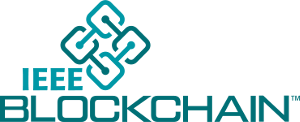Challenges

The National Healthcare Anti-Fraud Association (NHCAA) estimates that the financial losses due to health care fraud and abuse are in the tens of billions of dollars each year.A significant amount of these claims come from victims whose medical records are compromised or whose legitimate insurance information is used to submit false claims.

Interoperability is at the heart of many HealthIT policy discussions, as in, “How can we allow to health care institutions to talk to each other around patient data?” Part of the problem may be that for business reasons, not technological reasons, institutions may not want to share their patient health information. Patients, however, do have the rights to access this information. How, using blockchain related technologies, might we provide a way for patients to accept data in one format, convert it to another format, and share it with another institution with appropriate incentives. How might we create a sustainable individual-centric health data exchange that’s not dependent on a third party for storage or conversion?

University and industry researchers assert that more extensive sharing of patient data could accelerate research and discovery and advance benefits for patients and other stakeholders. Current research also indicates that many patients would be willing to share their de-identified health data, particularly if doing so could benefit other patients, reduce costs, or enhance their own understanding or care. However, competing demands around privacy and trust have severely limited bidirectional sharing of patent data. Can these limits in the current system be addressed by the promise of blockchain technology?

Counterfeit medicines are a serious public health problem and have infiltrated rich and poor countries alike. Even here in the USA, we do not have sufficient controls to ensure that patients are safe from counterfeit medicine penetration in our drug supply chain. Hence, a modernization of our drug supply chain is needed in order to ensure adequate track and trace of pharmaceutical products, enable interoperability across different supply chain actors, and provide needed security for e-pedigree solutions. Does blockchain represent a technology solution that can address this issue and if so, how?

Healthcare data is notoriously difficult to analyze because it is often incomplete, complex, and much of the data is stored in multiple data siloes that don’t communicate, such as EMRs, radiology, pharmacy, patient support programs, patient registries, self-care apps, etc. and in multiple formats, both structured and unstructured. Furthermore, inconsistent definitions make linking and combining the data complicated. The first part of the problem involves making the data accessible while respecting privacy, security, and patient control through the blockchain. The later part of the problem requires combining the data to enable research and analysis.
Challenges
Slack Channel
Team Name:
AHT4H_Virtual_Blockchain_Workshop
Team Domain:
https://aht4h-vblockchain.slack.com/




